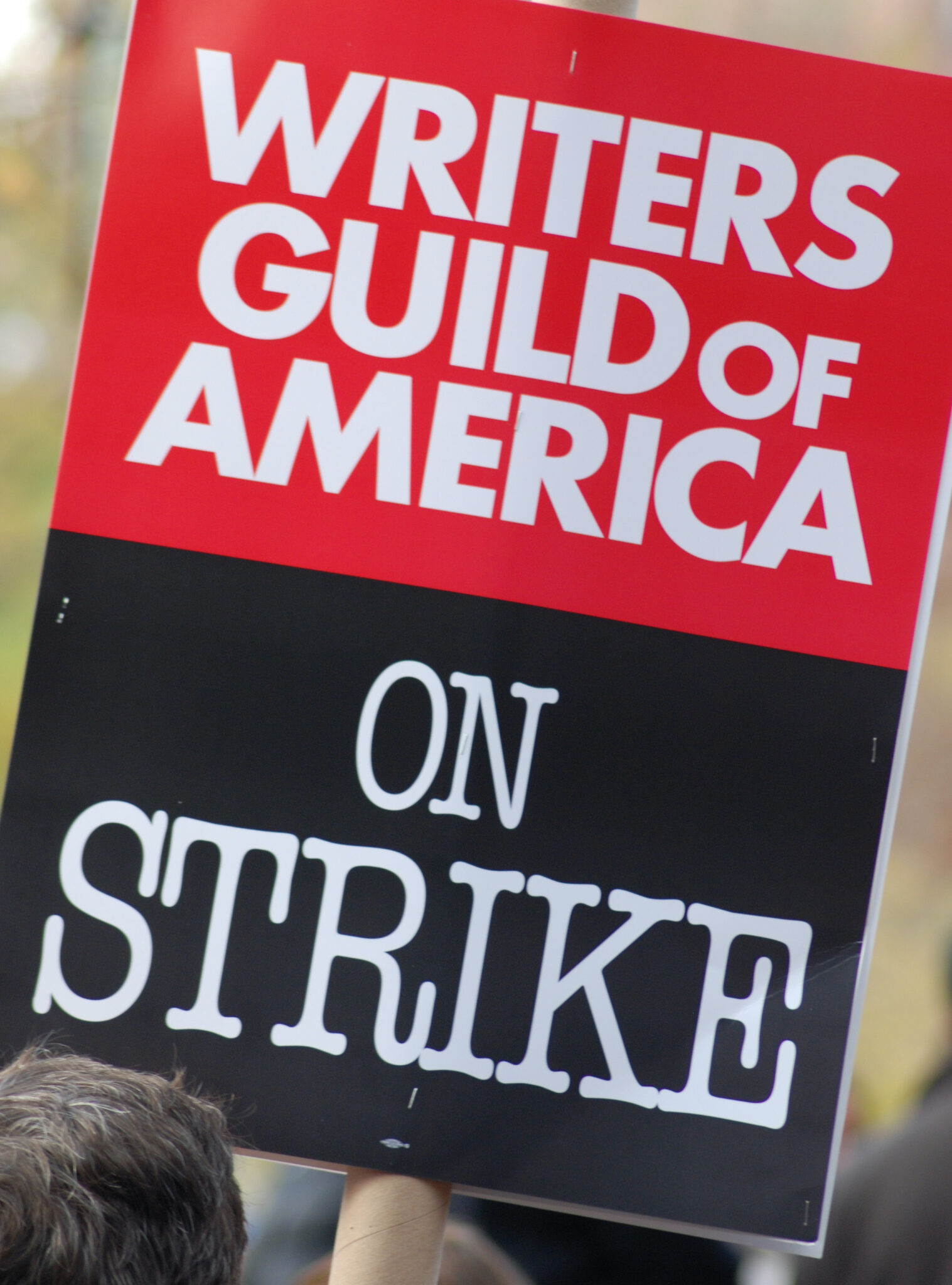
Iman Masmoudi is a student at Harvard Law School.
The Writers’ Guild is officially on strike; job openings have declined again; workers continue to protest in France.
Last night, the Writers’ Guild of America announced that they voted to authorize a national strike which would begin today, Tuesday, May 2, and the announcement was greeted with jubilation and support across Hollywood. The strike includes almost 20,000 workers who are asking for a restructuring of compensation contracts which haven’t adjusted to respond to the new revenue models based on online streaming rather than TV advertisements. As corporate profits have gone up, writers are left with a smaller share of the fruits of their labor, and their pay has gone down over the past 10 years as a consequence. In response, company negotiators claim the primary sticking points were on staffing levels rather than compensation at the major studios, including companies as varied as Paramount, Apple, and Netflix. Interestingly, previous reporting has shown that the union is also negotiating over use of artificial intelligence in the industry, indicating perhaps that writers view some forms of AI as a potential threat to job security. For now, short turn-over late night shows will go off air immediately, meanwhile viewers will see other effects from this strike on a longer timeline of months and even years. The W.G.A. views this moment as “existential” and said, “the survival of writing as a profession is at stake in this negotiation.”
The Labor Department released its March report today showing a continued decline in job openings which reached the lowest levels in two years . The Federal Reserve watches this number closely as a marker of broader economic health and as a gauge for its economic interventions to slow inflation without triggering crises. But as a labor market specific statistic, the trend is in conflict with the narrative that worker power continues to rise as workers gain bargaining power to the high demand for labor. Instead, the Fed views a high number of jobs per unemployed worker as a driver of high pay and therefore inflation. It rejoices in response to a decline in that number as it signals “the labor market’s gradual slowdown.” This macroeconomic view of the labor market remains a key point of tension between what workers want and what policymakers view as overall beneficial.
Yesterday, on May Day, French workers joined marches all over the country in continued mass opposition to the decision to increase the retirement age from 62 to 64. From the north to the south of France, government sources said 800K people joined protests while unions said turnout was closer to 2.3 million. President Macron continues to be plagued by the political fallout from this choice, which some have called “the biggest political threat” in his second term as President. Protestors object both to the substance of the policy and the way in which it was passed through a loophole without Parliamentary approval. The leader of the largest union in France said the message of the Paris marches, which included destruction of storefronts and small fires all over the city, was “no again to retirement at 64.” The May Day protests were the 13th national day of protest since January and also represented an impressive show of solidarity as the nation’s unions joined together for the May Day demonstrations for the first time in ten years.






Daily News & Commentary
Start your day with our roundup of the latest labor developments. See all
February 20
An analysis of the Board's decisions since regaining a quorum; 5th Circuit dissent criticizes Wright Line, Thryv.
February 19
Union membership increases slightly; Washington farmworker bill fails to make it out of committee; and unions in Argentina are on strike protesting President Milei’s labor reform bill.
February 18
A ruling against forced labor in CO prisons; business coalition lacks standing to challenge captive audience ban; labor unions to participate in rent strike in MN
February 17
San Francisco teachers’ strike ends; EEOC releases new guidance on telework; NFL must litigate discrimination and retaliation claims.
February 16
BLS releases jobs data; ILO hosts conference on child labor.
February 15
The Office of Personnel Management directs federal agencies to terminate their collective bargaining agreements, and Indian farmworkers engage in a one-day strike to protest a trade deal with the United States.